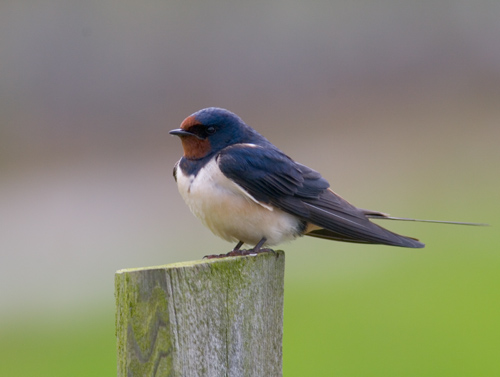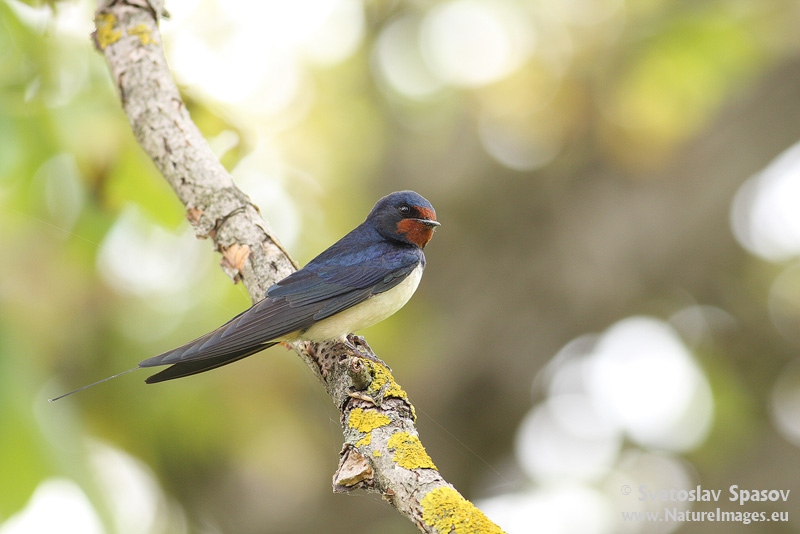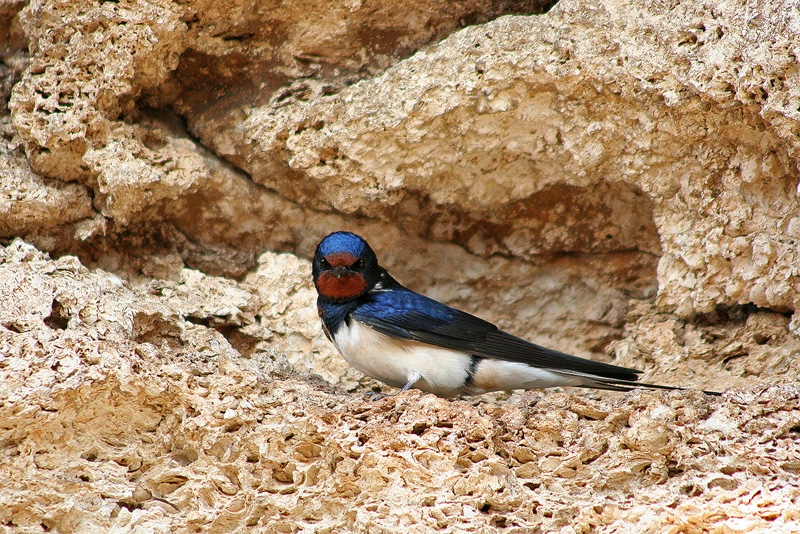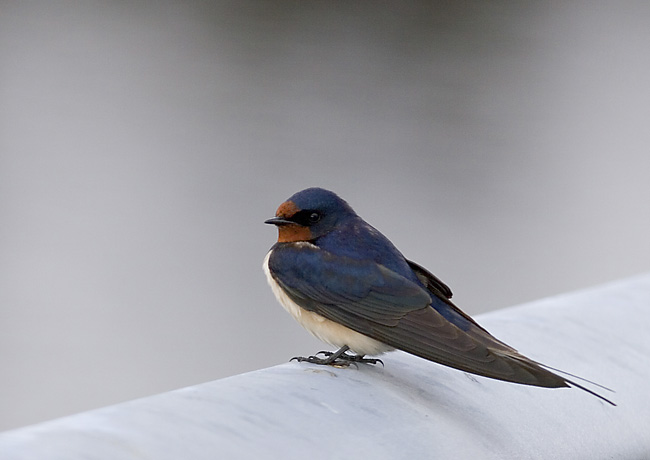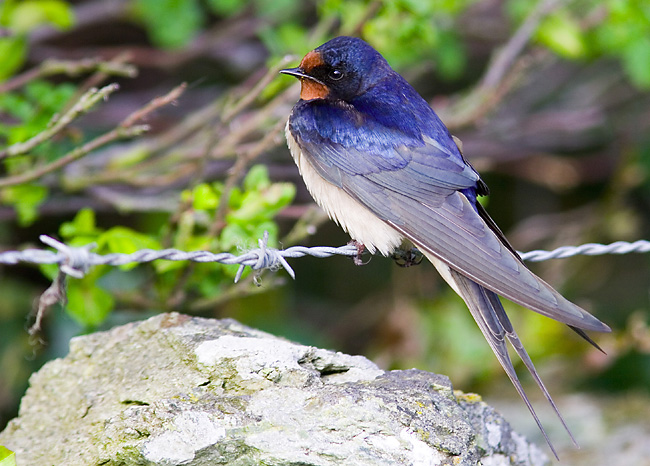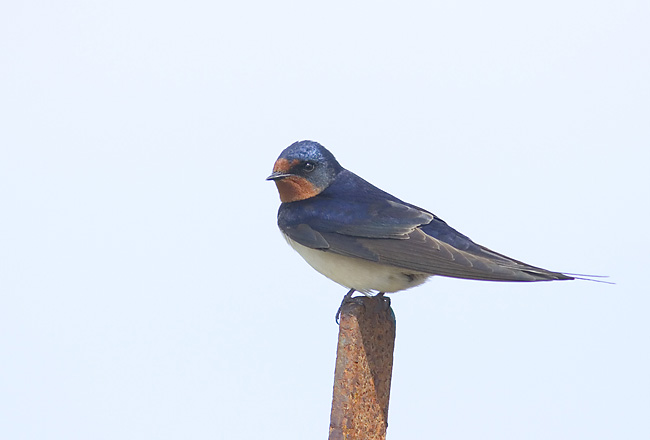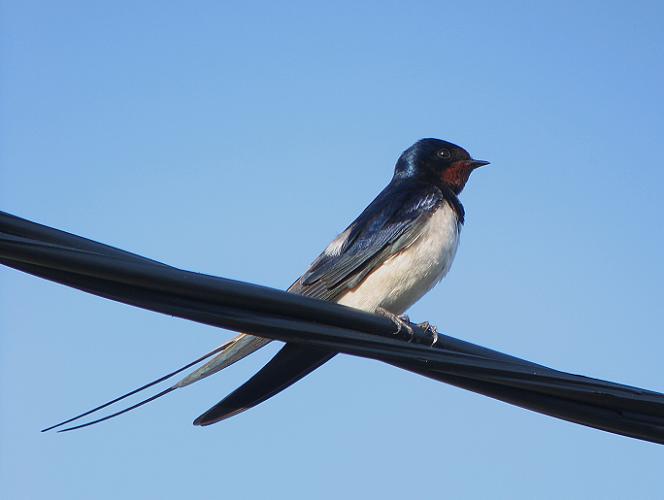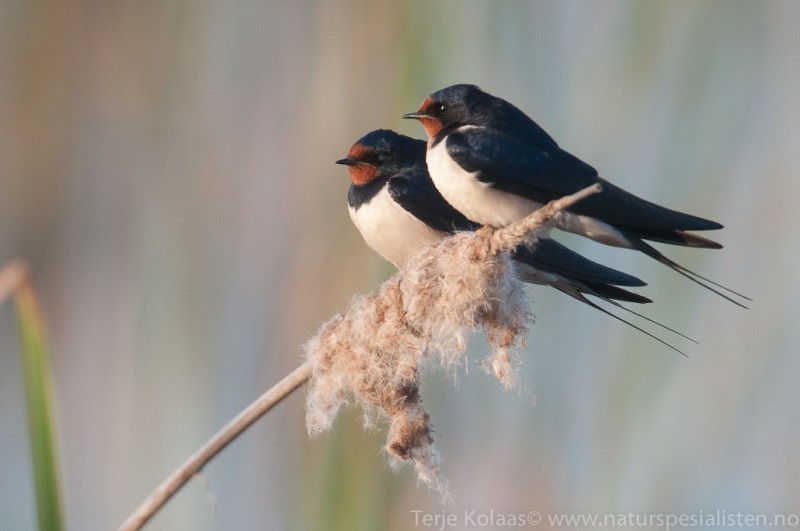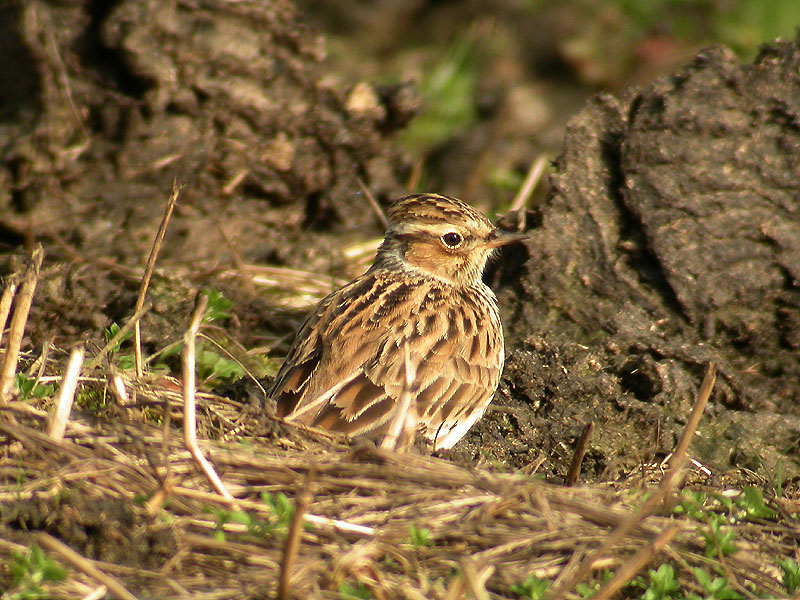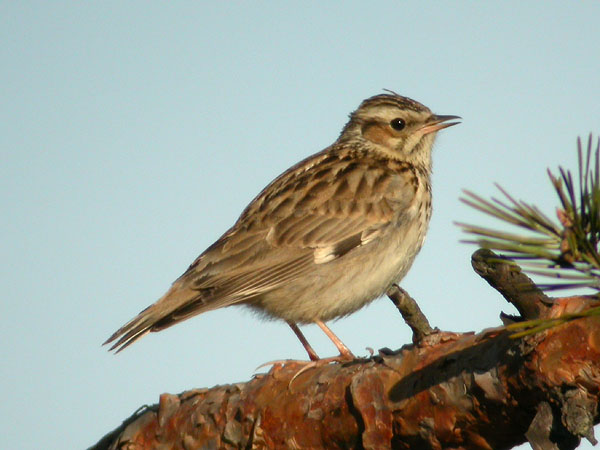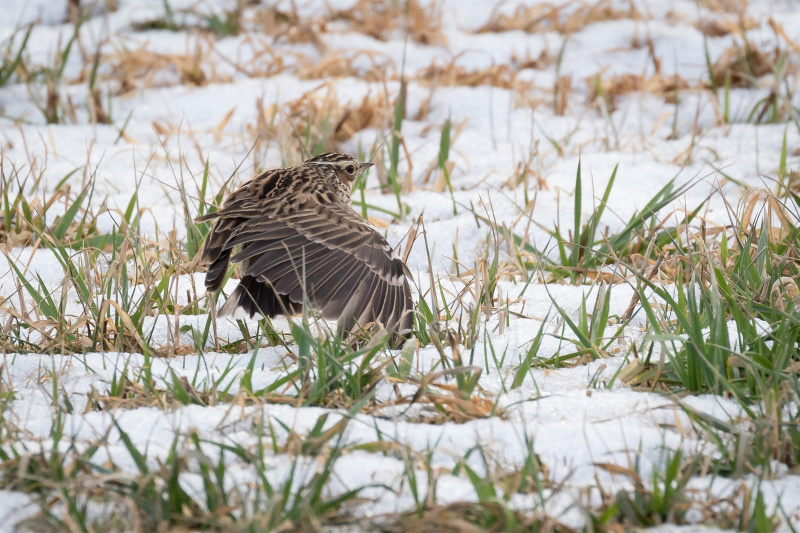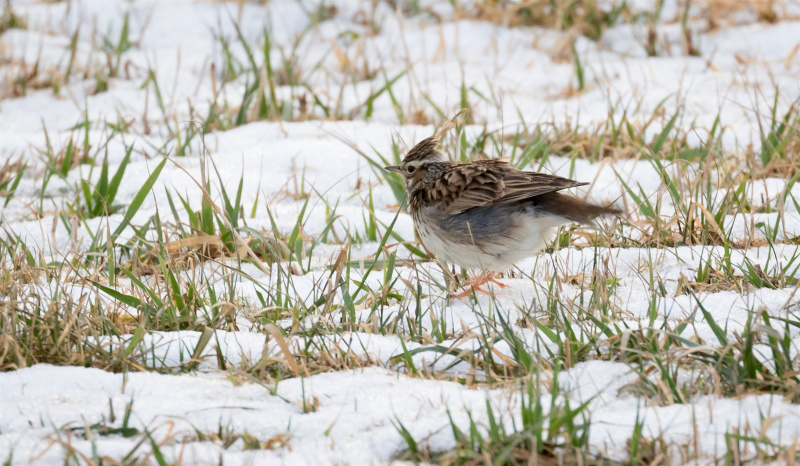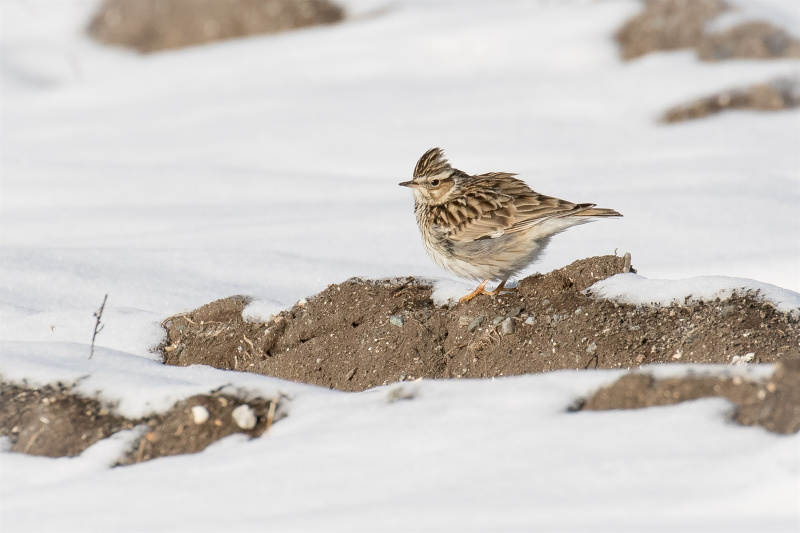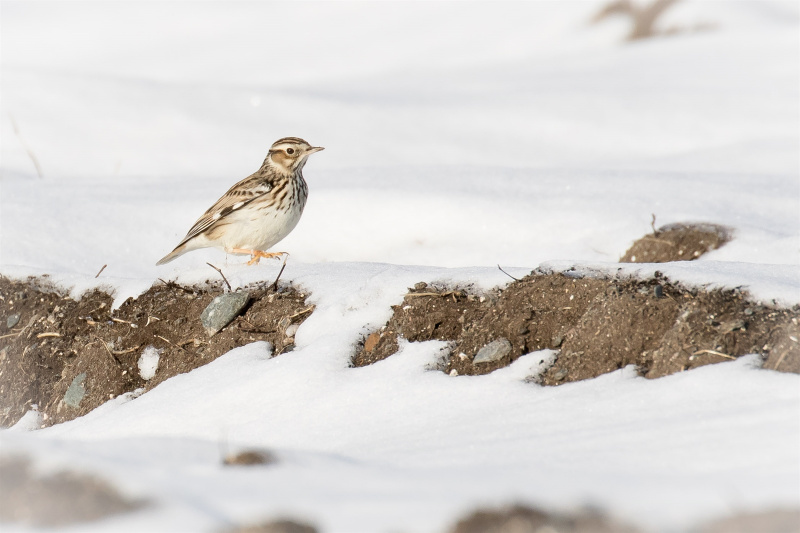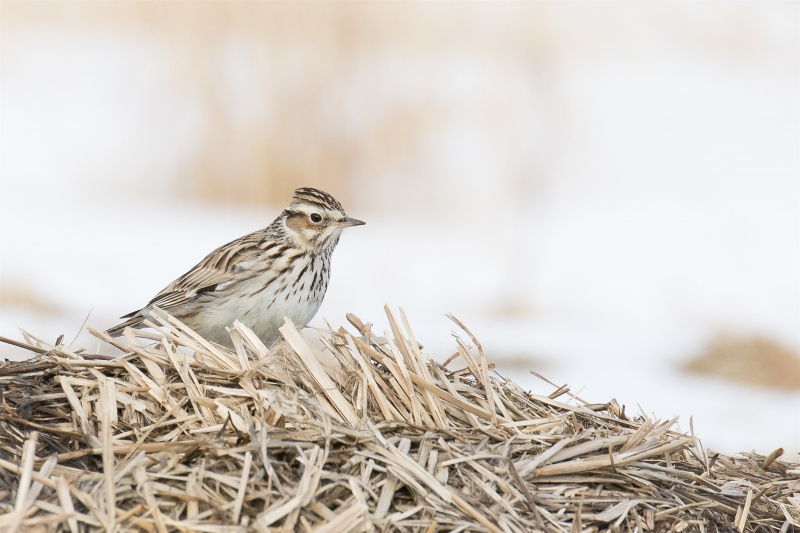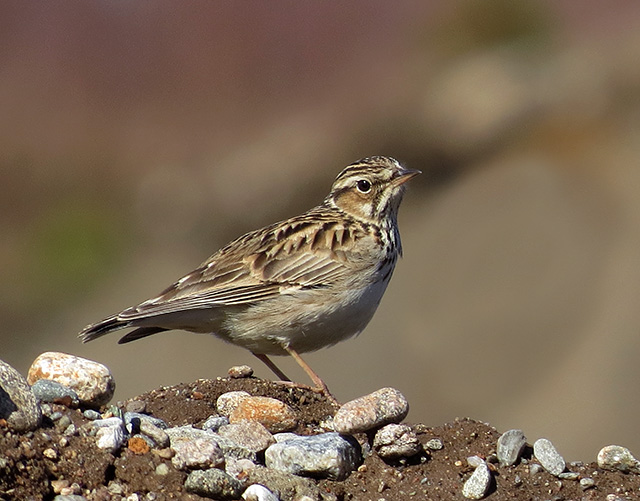Barn Swallow (Hirundo rustica)
Woodlark (Lullula arborea)
Dark blue metallic upperparts, deep red forehead and throat and light underparts. Long tail-streamers in adults and deeply forked tail. Both the metallic blue and the deep red appears black at a distance. Combination of dark throat/breast and light underparts and vent is diagnostic, and distinguishes it both from Red-rumped Swallow and the smaller martins. Juveniles are less brightly coloured with a dull red throat, and short streamers.
Sound:Characteristic calls and song. Contact call a short and sharp "weet" or "kee-weet". Song a sparkling, squeaky energetic improvisation with interspersed contact calls, often with diagnostic ending; an electric and drawn-out "su-eerrrrrrrrrrrrrrr".
Song:
Distribution:
Wikipedia: map (se also Xeno-canto below)
Ecology:Birdlife ecology
Links:
Observation.org Latest observations
Image search Flickr NB! May give other species
CCBill finer than Skylark. Strong white supercilium reaching the neck. Distinctly streaked nape. Wings rounded, and with white edged primary coverts, but no white trailing edge as opposed to Skylark. Tail short and square with white trailing edge. Differs from skylark in posture and behaviour, and appears more erect when perched. Undecisive, bat-like flight.
Sound:Song: Distinct and quite slow for a lark. Consists mainly of varied, disyllabic elements, or single syllables repeated in descending, accelerated phrases. Starting soft and hesitantly, then gaining in strength and speed.
Song:
Distribution:
Xeno-canto: map
Ecology:Birdlife ecology
Links:
Observation.org Latest observations
Image search Flickr NB! May give other species
CC
 English
English Albanian
Albanian
 Armenian
Armenian
 Bulgarian
Bulgarian
 Catalan
Catalan
 Croatian
Croatian
 Czech
Czech
 Danish
Danish
 Dutch
Dutch
 Finnish
Finnish
 French
French
 Georgian
Georgian
 German
German
 Greek
Greek
 Hungarian
Hungarian
 Italian
Italian
 Latvian
Latvian
 Lithuanian
Lithuanian
 Macedonian
Macedonian
 Norwegian
Norwegian
 Polish
Polish
 Portuguese
Portuguese
 Romanian
Romanian
 Russian
Russian
 Sami : Lule sami
Sami : Lule sami
 Sami : North sami
Sami : North sami
 Sami : South sami
Sami : South sami
 Scientific names
Scientific names
 Serbian
Serbian
 Spanish
Spanish
 Swedish
Swedish
 Ukrainian
Ukrainian


